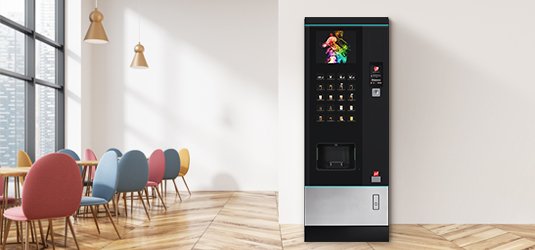
SiLine® HG TS7
The SiLine® HG TS7 slots perfectly into a SiLine® line and inspires with large advertising discs, modern design and a large output. The "Trend" variant is also fitted with a lower advertising panel.

The SiLine® HG TS7 slots perfectly into a SiLine® line and inspires with large advertising discs, modern design and a large output. The "Trend" variant is also fitted with a lower advertising panel.
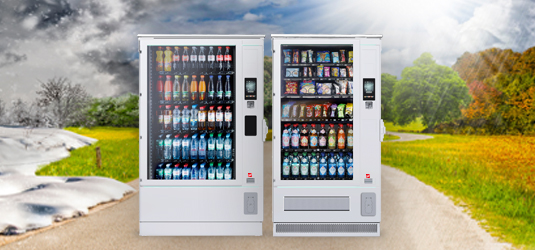
A diversity of food and non-food items can be dispensed from Sielaff’s SiLine® Outdoor vending machines. Extremely reliable, secure, hygienic and without restricted opening hours.
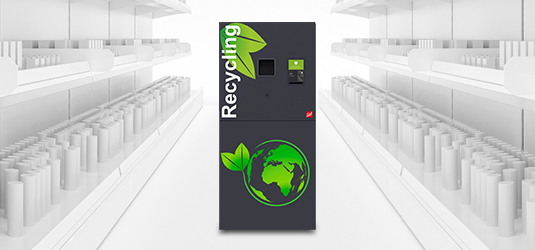
The new legislation means that the standalone SiCompact ECO return system for disposable containers only and the SiCompact ECO M for disposable and reusable containers are the ideal solutions for small stores that are required to take back empties.
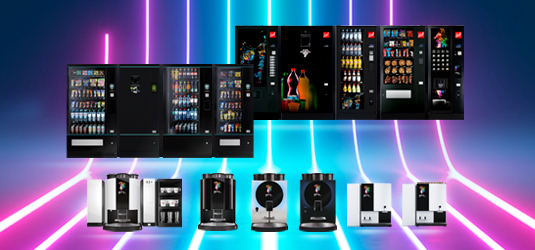
Lining up for success – Sielaff vending machines from a specific range not only share the same design but also technology. Unmistakably Sielaff. Our new range is based on 3 product lines: SiLine, SiVend and Siamonie.
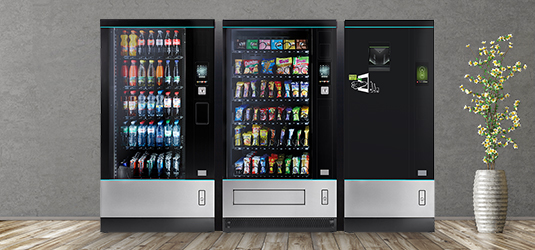
Sustainability starts with reverse vending – the new SiLine SiOne is the perfect solution for the fast return of refillable and non-refillable drinks packaging – PET-bottles, cans and coffee cups. The SiOne with its simple, modern line design complements our existing SiLine-Series and cannot fail to draw admiring glances.
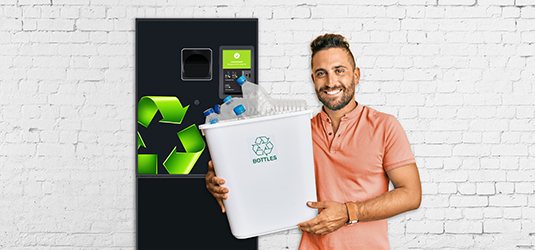
Faster, better and more intuitive thanks to state-of-the art technology. When using the SiVario 2020 the acceptance of empty packaging is future-proof and extremely quick.
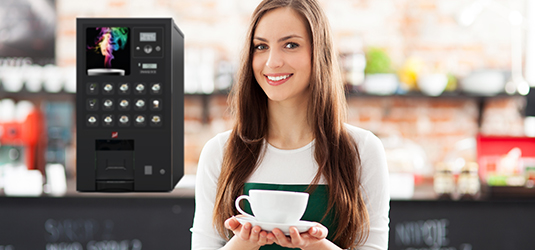
In the tabletop sector coffee connoisseurs are always on the lookout for a new coffee specialist providing the finest quality coffees combined with the latest technology: The SiVend HG 15 TT.
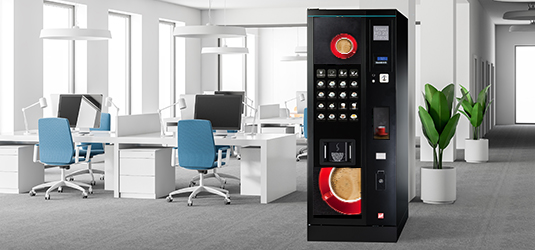
The SiVend HG20 Trend hot drinks vending machine is an extremely modern, easy-to-use machine. With its large capacitive buttons behind a full-size glass panel it cannot fail to impress, wherever the location.
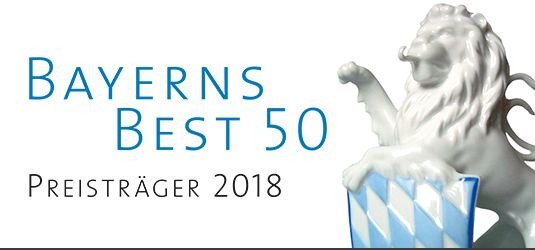
Sielaff has won multiple awards: Sielaff is amongst the top 50 family-owned companies in Bavaria and following a survey by the German business magazine “Focus Money” in combination with “Deutschland Test” can even boast being awarded the title “Germany’s best jobs”.

The Robimat XM won its category in the European competition ProCold (an EU-initiative). The award ceremony took place on 07.03.2017 in parallel with the EuroShop exhibition in Dusseldorf.
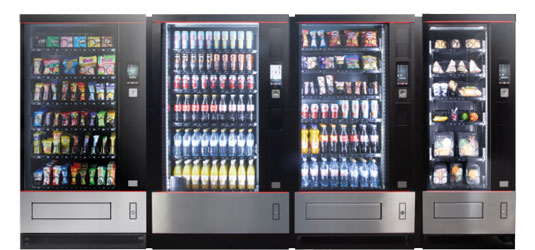
Ingeniously simple – simply ingenious.
The new SiLine generation of vending machines operates to a simple principle: The machines’ definitive lines and high value, puristic design focus on the most important feature of all – high turnover.
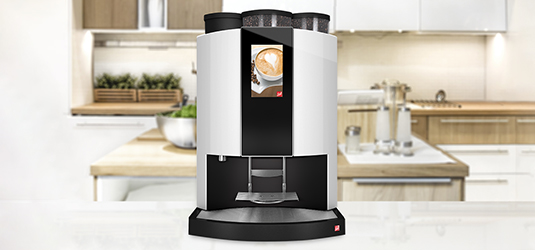
Successor model to the Piacere, the first Siamonie machines were launched in 2015.
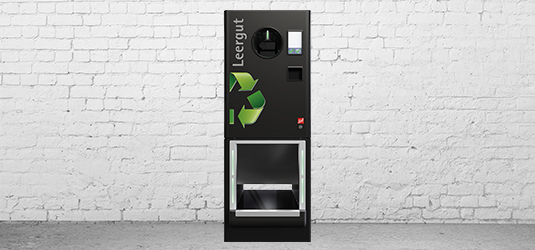
In 2014 the SiVario Next is added to the reverse vending systems portfolio. In the hot drinks sector the SiGusto is replaced by the SiGusto Next.
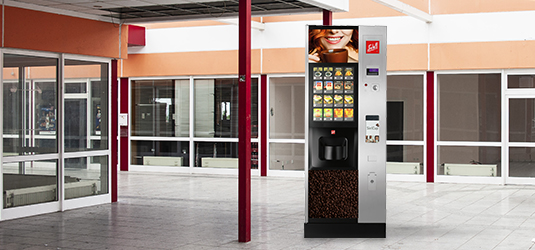
In the summer of 2013 the SielCup, the new in-cup hot drinks machine, was launched for the first time at the EuVend in Cologne. Special feature: Delicious speciality coffees, aromatic teas, soups with croutons or noodles can be offered and dispensed in conventional in-cup cups.
Suitable for our hot drinks machines our cup dispenser was developed and has been on the market since August 2013.
In the same year the SiCompact Small was added to the Reverse Vending Machines Series. Characterising features are : separation by packaging type, ease of use, fast acceptance as well as its modular and service-friendly design.
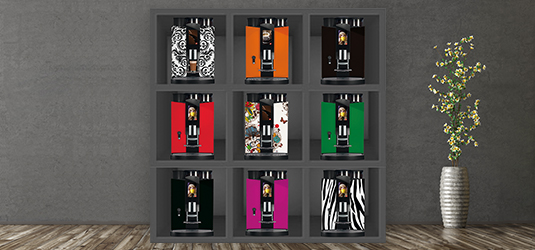
In the Spring of 2012 touch variants were added to the Piacere Series. Elegant design, easy to use with high-performance technology made this the perfect choice for any site.
In the Summer of 2012 the vending machine portfolio was expanded with the introduction of the Robimat XL – a glass-fronted, small footprint cold drinks machine with XL-volume – and the SiGusto – an innovative floor-standing vending machine, serving real coffee and chocolate specialities to barista standards in seconds.
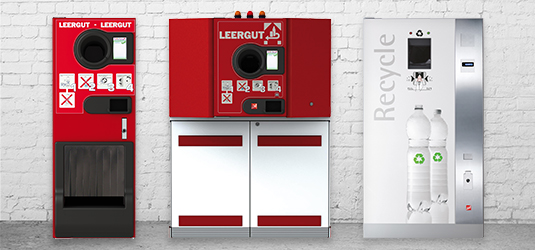
In 2011 the existing range of reverse vendors – i-core and i-core compact – underwent a relaunch. The new reverse vendors SiVario, SiCompact and SiOne were introduced.
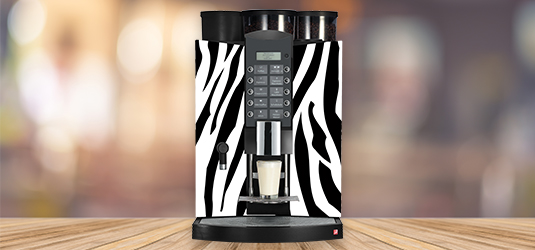
The year 2009 saw the development of the Piacere – a tabletop machine for the Hotel Restaurant and Catering sector.
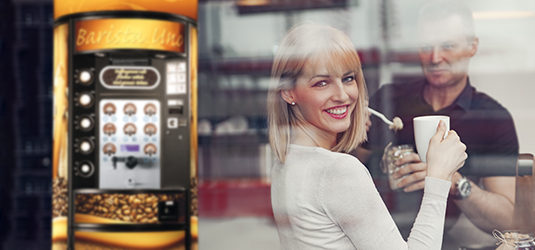
In 2007 the move into the food service sector was made possible by the Barista Uno, a high quality coffee machine with all around advertising – using fresh milk and whole beans – Sielaff’s entrance to the high-end beverage market.
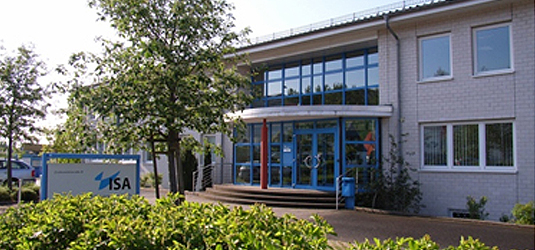
In August 2004 the subsidiary ISA GmbH & Co. KG in Illmenau was founded to support the development work in the reverse vending sector. This enabled Sielaff to expand its knowledge of electronic image processing – this was key to the building of reverse vending equipment.
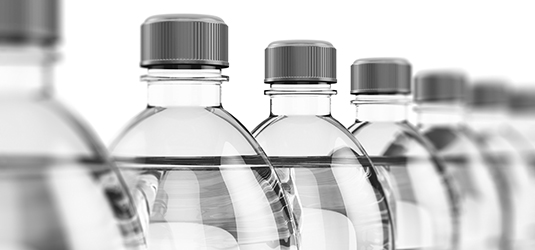
In 2003 a deposit scheme was introduced in Germany on refillable and non-refillable drinks containers. Sielaff saw this as an opportunity to develop its first reverse vending machine for the most varied market requirements.
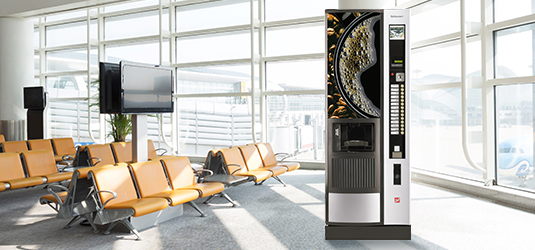
From 2002 the first hot drinks floor-standing vending machine was developed (CIS 500). The line was expanded to include a tabletop variant in 2004. Its innovative new feature: The machine worked using a horizontal brewer and the interior was high-grade metal rather than plastic to improve the machine’s working life.
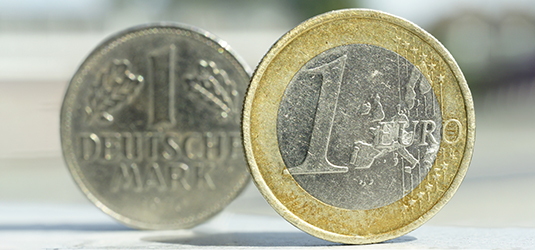
The Millennium brought with it a real boost to the industry. The existing vending machines – from postage stamp machines to cigarette machines – had to be modified to accept the new “Euro” currency.
Another innovation: The launch of the FS 2000 combi-machine, offering bottles, confectionery and snacks from a single machine.
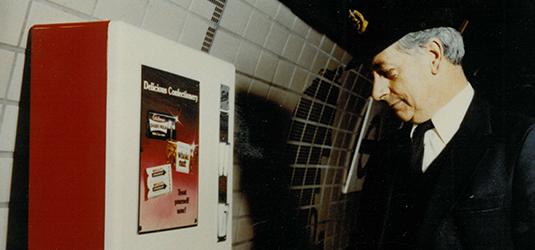
Another revolutionary innovation was the introduction in 1995 of environmentally-friendly solar technology to operate machines.
Although Sielaff has adapted to market requirements and expanded wherever opportunities to improve delivery performance have arisen, the headquarters have remained in Franconia! The company headquarters have been continually expanded over the decades to keep up with modern technology.
In the early nineties Sielaff developed an electronic control system which replaced the mechanical operation of the vending machines. The cumbersome and jerky operation of a cigarette machine was now replaced by an almost silent, slick dispense mechanism.

From 1987 to 1992 Sielaff founded a series of subsidiaries. Chiller units have been manufactured for all cold drinks and column machines in Oelsnitz and still are to this day.
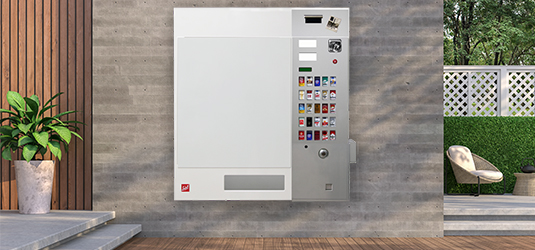
1986 saw the emergence of completely new type of cigarette machine with electronic control board (SC). This "fully-electric" outdoor vending machine was something completely new.
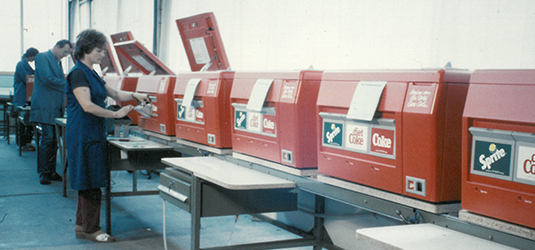
In 1984 the development of a "Drinkbox" for Coca Cola aroused attention. The machines with three flaps for 0.33 litre cans were sold by Sielaff in the USA.
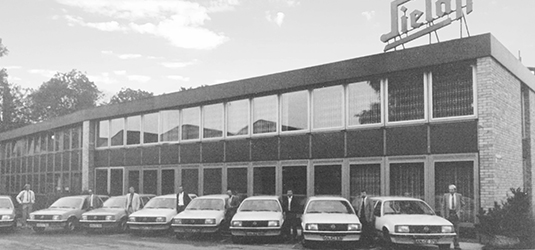
With the new machine developments it was again necessary to extend the factory in Herrieden – in 1976 an additional workshop, new warehouse were completed and the current office building extended.
In the same year the bottle acceptance machine (FRÜ 200) as well as a drum-design machine with 14 mechanical selection options were introduced.
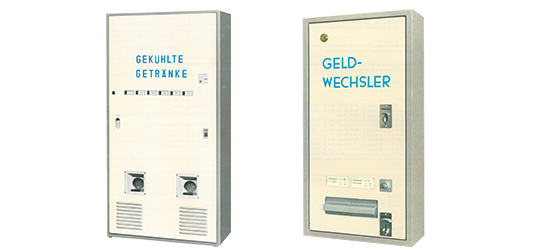
In 1970 a fully-automated bottle machine with 6 selections (FK260) was introduced.
An additional innovation was the manufacture of money changing machines (GW2), which had two mechanically operated drawers.
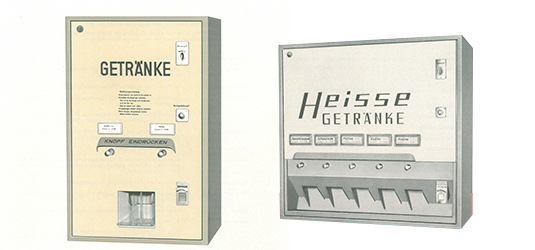
In 1967 Sielaff introduced its first hot drinks machine with two (HG2) or five (HG5) selections.
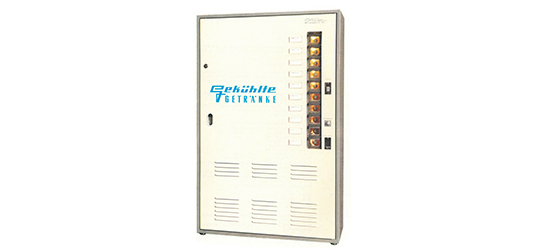
This was followed in 1966 by a bottle machine with 10 selections (FK150).

In 1961 the first universal machines (UNI) offering 5 selections were built as a wall or floor-standing unit.
Sielaff’s next great success was the manufacture of bottle vending machines with six selections – In 1962 the F60 and one year later with chiller (FK60).
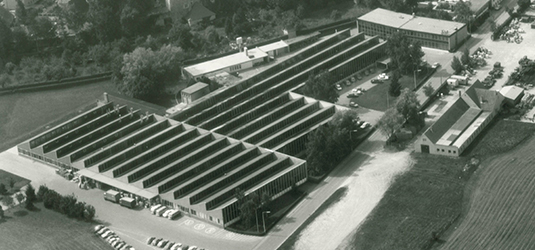
The Herrieden site was expanded: In addition to the office building the first factory hall was built in 1958 and the second hall and the current office building in 1960.
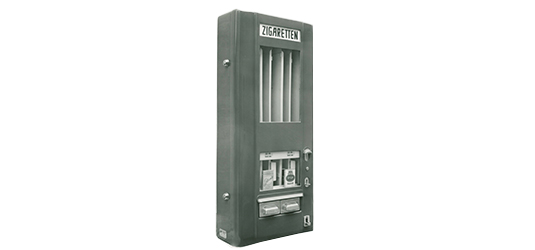
Germany’s Economic Miracle continued to flourish. German engineering and high quality products "Made in Germany" were again sought after. It was the perfect time for pioneers, creative minds and visionary employers. A perfect time for Sielaff!
The most important milestone in product development included the first cigarette vending machine to hit the market in 1954.
By the beginning of the new century, over 400,000 vending machines went into operation in West Germany alone.
The following years are typified by exceptional growth.
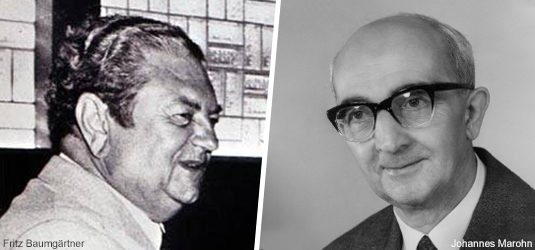
In 1949 Fritz Baumgärtner, Mayor of Herrieden and Vice District Administrator of the county of Ansbach, joined Johannes Marohn, a machine tools engineer from Berlin, and Edmund Sielaff as shareholders and founders.
The three business partners shared the areas of development, production and sales.
The foundation of their company activity was based on repairing Stollwerck-vending machines – machines which over 60 years had achieved an unparalleled success story.
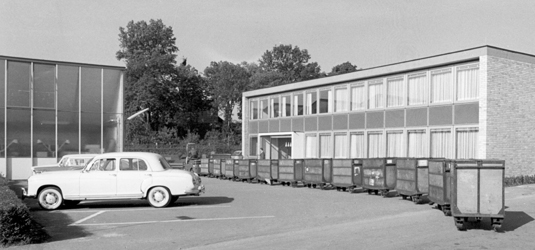
The war destroyed large parts of Sielaff’s vending machine plant.
In 1948 Edmund Sielaff, nephew of the sole company founder Max Sielaff found not only found suitable business partners in Herrieden but also the space necessary for him to realise his innovative ideas.
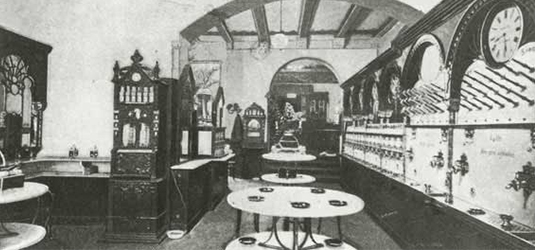
The DAG exhibited this new vending machine restaurant for the first time as part of the Berlin Commercial Exhibition of 1896. It was a sensation!
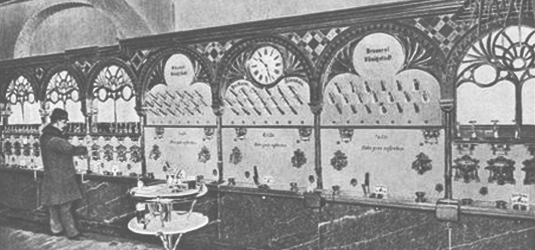
In 1895 the first liquid vending machines were built by Max Sielaff. This was followed by the "Buffet" and finally the "Restaurant".
All of the machines dispensed beverages including milk, chocolate and mineral water.
The high point was the "Vending Machine Restaurant", as conceived by Max Sielaff, which allowed customers to obtain cold and warm dishes as well as drinks, by inserting coins.
In 1894 Stollwerck together with Max Sielaff and Theodor Bergmann founded the German Vending Machine Association "DAG", which soon achieved international acclaim.
The vending machine victory march took place in Germany, the rest of Europe and overseas.
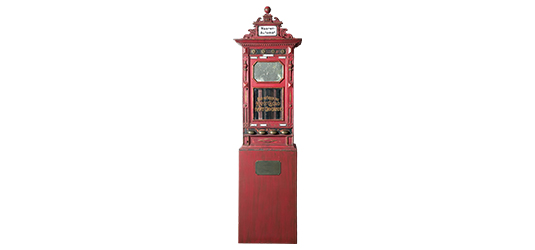
In conjunction with Theodor Bergmann Metal Works in Gaggenau/Baden, Max Sielaff developed the first confectionery vending machines commissioned by Cologne chocolate maker Ludwig Stollwerck.
By the early 1890’s Stollwercks chocolate bars were being sold from more than 10,000 machines throughout Germany.
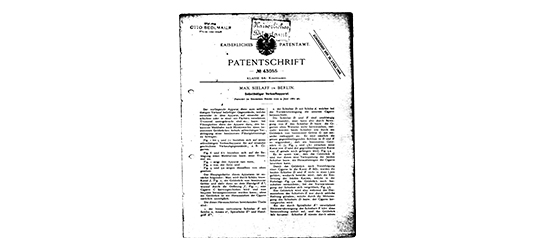
Following the granting of an imperial patent on 9th June 1887 for "an automated vending machine", Max Sielaff’s company specialised in the production of vending machines, scales, dynamometers and other equipment.
The patented vending machine fulfilled every demand for practical, everyday use. A variety of products could be dispensed and it was fitted with a reliable coin validator.
This was the beginning of the success of vending machines in Germany, other European countries and overseas.
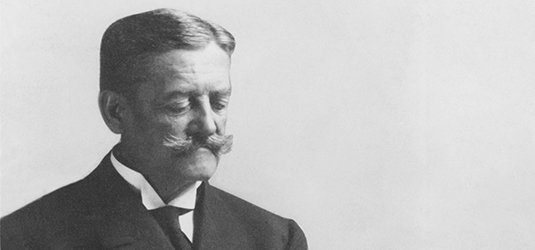
Engineer Max Sielaff developed a range of innovative products – in 1886 amongst other things the first vending machine.